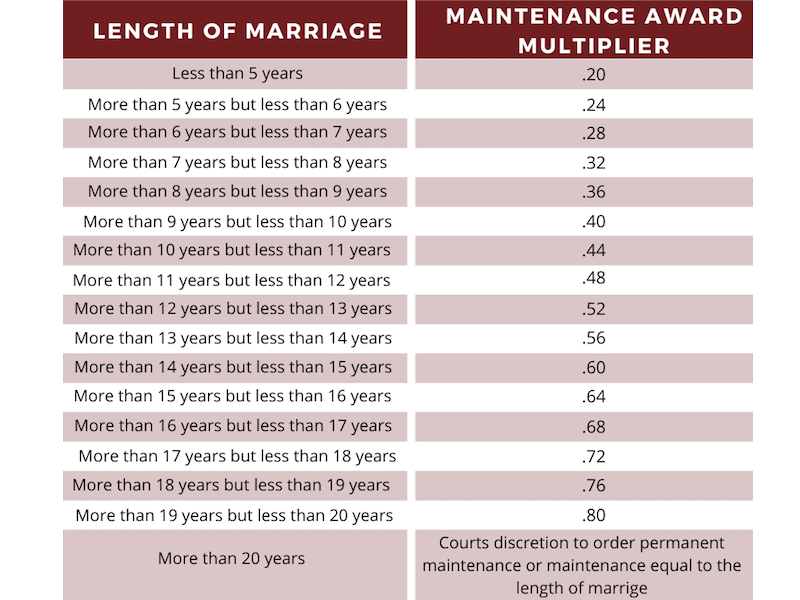A spousal maintenance award, formerly known as “alimony”, is a potential consequence of getting divorced that is important to be aware of. In Illinois, spousal maintenance is intended to help financially dependent spouses transition to life after divorce and become financially independent. To see whether you are entitled to maintenance, or would be required to pay maintenance, contact the Will County divorce lawyers at Giannola Legal LLC for a complimentary consultation.
How does the judge decide if a maintenance award is appropriate?
To decide whether to award maintenance, the judge will consider a variety of factors. These factors include things like the spouses’ income, the need for support, the spouses’ standard of living during the marriage, the spouses’ ages and health, and whether one spouse contributed to the other’s education during the marriage.
How much is maintenance and how long does it last?
Once the judge has decided that one spouse should get maintenance after the divorce, she will then calculate the amount of the award and how long the payments should continue. In most cases, the judge will use a specific statutory formula to decide how much maintenance to award (33% of the paying spouse’s net income minus 25% of the receiving spouse’s net income) and how long it will last. Generally, the larger the gap between the spouses’ income, the higher the maintenance payments will be. There is, however, a limit to the amount of maintenance the court can award – it can’t be more than 40% of the (former) couple’s combined net income. In addition, the longer the marriage lasted, the longer the maintenance payments will last. The court will multiply the length of the marriage at the time the divorce was filed, by the applicable multiplier based on the marriage length. See below for the statutory guidelines on duration of maintenance awards:
Can maintenance be modified?
If you have been ordered by the court to pay maintenance to your former spouse, you may be allowed to modify or end maintenance payments in certain cases. If your former spouse gets remarried or begins cohabitating with a new romantic partner, your maintenance obligation will be terminated automatically upon a motion filed and heard by the court. On the other hand, if you or your former spouse have had a change in financial circumstances – like a significant income increase or decrease, job loss, etc. – you can petition the court and ask the judge to change or even eliminate the maintenance award.
Maintenance, like all aspects of the divorce process, is a complex topic that can be difficult to navigate on your own. As always, it’s best to talk to a lawyer like the knowledgeable and experienced Will County divorce lawyers at Giannola Legal LLC, to make sure any spousal maintenance awards are fair and properly calculated. Giannola Legal LLC serves all counties in the Chicagoland area and offers free, no time limit consultations.











